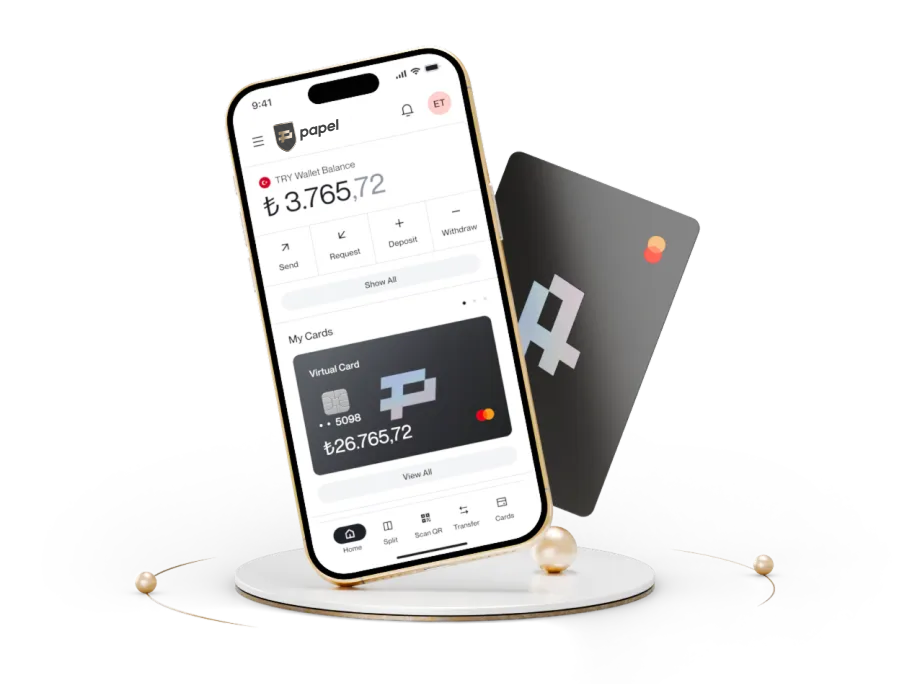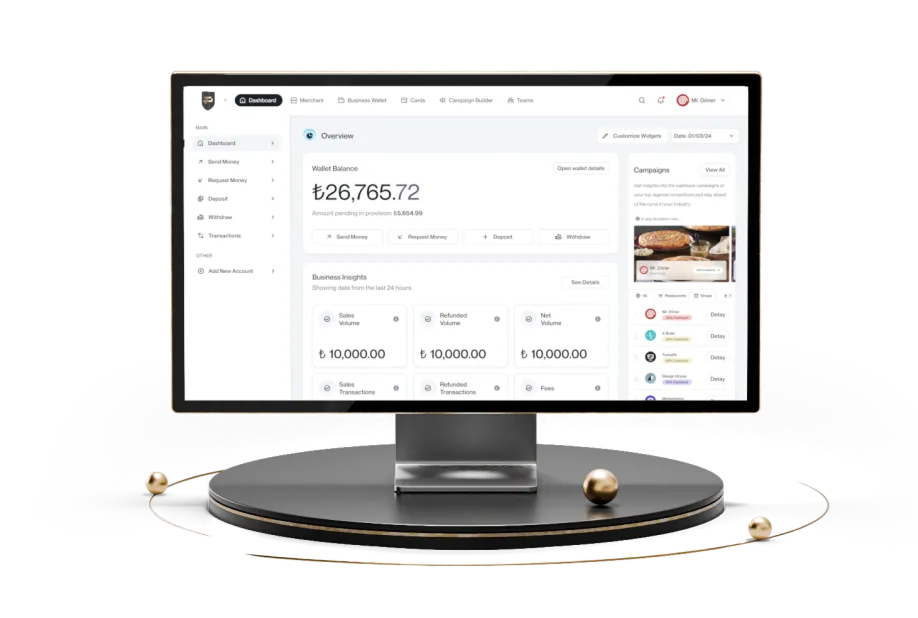What Is Blockchain Technology? How Does It Work?
Blockchain technology is a groundbreaking innovation that has the potential to transform not only the financial world but every aspect of our lives. Known for its transparency, security, and decentralized nature, blockchain offers unique opportunities for individuals and institutions alike. While its journey began with cryptocurrencies, blockchain now extends its solutions to industries such as healthcare, supply chain, real estate, and education. This article explores how blockchain works, its advantages, applications, and its development in Turkey.
What Is Blockchain?
Blockchain, a form of Distributed Ledger Technology (DLT), is a system where data is stored in blocks and linked together using cryptographic methods. Operating without the need for a central authority, blockchain ensures data is stored securely, transparently, and immutably. In its decentralized structure, data is distributed among all participants in the network. Each block in the chain contains a cryptographic hash of the previous block, forming a chain-like structure. This ensures enhanced security and makes tampering with the system nearly impossible.
Thanks to its decentralized nature, blockchain eliminates the need for intermediaries, making transactions faster and more cost-effective. It also resists censorship, as it operates without interference from central authorities. These features enable blockchain to revolutionize sectors such as finance, healthcare, and supply chain management.
The History of Blockchain
The origins of blockchain trace back to 1991 when Stuart Haber and W. Scott Stornetta developed methods to timestamp digital documents. However, the technology gained global recognition in 2008 when Satoshi Nakamoto introduced it in the Bitcoin: A Peer-to-Peer Electronic Cash System paper. While first-generation blockchains were limited to digital payments like Bitcoin, second-generation platforms such as Ethereum expanded their use through smart contracts. Today, third-generation blockchain projects offer faster and more scalable solutions, making the technology more accessible and efficient.

How Does Blockchain Work?
Blockchain is a system that stores data securely, transparently, and in a decentralized manner. Fundamentally, a blockchain network operates by linking data blocks together in a chain. Each block contains a set of data, a timestamp, and a cryptographic hash of the previous block. This structure secures the links between blocks, making it nearly impossible to alter past data once a block is added.
Blockchain operates on a distributed network where all participants (nodes) have a copy of the chain. When a new transaction occurs, it is verified using cryptographic algorithms and approved through a consensus mechanism among the nodes. Verified transactions are grouped into a block, which is then added to the chain. This structure enhances data security while providing transparency and trust. By eliminating the need for central authorities, blockchain offers a reliable transaction infrastructure.
Advantages of Blockchain
With its unique benefits, blockchain technology has revolutionized many industries. Beyond being a technological innovation, it serves as a powerful tool that impacts the daily lives of businesses and individuals. Blockchain’s transparent, secure, and cost-effective solutions make it a future-shaping technology for various sectors. Here are some key advantages:
- Transparency and Immutability
- Data Security and Privacy
- Intermediary-Free Transactions and Cost Savings
Transparency and Immutability
One of blockchain’s most notable features is its transparent data recording and immutability. Every transaction in the system can be viewed and verified by all participants in the network. Since each block contains a cryptographic hash of the previous one, tampering with the data is nearly impossible. This makes blockchain particularly reliable for industries like finance and supply chain management.
Data Security and Privacy
Blockchain secures data using cryptographic algorithms, making it highly resistant to cyberattacks due to its decentralized nature. While user identities remain anonymous, transactions are conducted securely, providing significant advantages for both individuals and institutions.
Intermediary-Free Transactions and Cost Savings
Blockchain eliminates the need for intermediaries, enabling direct transactions. This reduces reliance on banks, notaries, or other intermediaries, shortening transaction times and lowering costs. This benefit is particularly evident in international payments and contract processes.
Applications of Blockchain
Blockchain technology is evolving daily, driving transformation across various sectors. Its decentralized, transparent, and secure nature demonstrates that this technology is more than a novelty; it is a practical solution for many industries. Here are some sectors where blockchain is making a significant impact:
- Finance
- Healthcare
- Supply Chain
- Real Estate
- Education and Documentation
Finance
As the backbone of cryptocurrencies, blockchain has become one of the biggest innovations in the financial sector. Cryptocurrencies like Bitcoin and Ethereum facilitate secure, intermediary-free payments and enable faster, lower-cost international money transfers. Decentralized Finance (DeFi) applications also use blockchain to increase access to banking services and investment opportunities.
Healthcare
In healthcare, blockchain ensures patient data is stored securely and privately. Hospitals, clinics, and insurance companies can use blockchain for authorized data sharing, preserving patient confidentiality and reducing data breach risks. Blockchain also supports tracking the production of medical devices and combating counterfeit drugs.
Supply Chain
Blockchain enhances transparency and efficiency in supply chain processes. By recording the journey of products from production to consumption on the blockchain, counterfeit products can be prevented, supply chain management can be improved, and consumers can verify product authenticity. For example, in the food sector, blockchain can track the origin and freshness of products.
Real Estate
In real estate, blockchain simplifies property transactions and ownership transfers. Smart contracts enable automated and secure agreements between buyers and sellers, reducing the need for intermediaries like notaries or real estate agents. This streamlines processes and lowers costs. Additionally, storing property records on the blockchain enhances transparency and protects ownership rights.
Education and Documentation
In education, blockchain is used to verify certificates and diplomas. Universities and employers can quickly and securely validate a person’s educational background through blockchain-registered documents. This helps prevent counterfeit diplomas and speeds up hiring processes.

Blockchain in Turkey
Interest in blockchain technology has surged with the rise of cryptocurrencies in the financial sector. Turkey, one of the leading countries in cryptocurrency usage, has also witnessed local startups and technology firms developing blockchain-based solutions for domestic and international markets.
In July, Turkey introduced new regulations through the "Law on Amending the Capital Markets Law" published in the Official Gazette. These measures aim to protect investor rights and ensure market security. The law requires crypto service providers to obtain licenses, report activities to regulatory bodies, and comply with Anti-Money Laundering (AML) rules. These legal reforms support blockchain’s integration into the economy while safeguarding the rights of individual investors in the cryptocurrency market.

